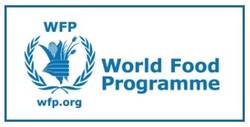Partnerships
FAO acknowledges that eradicating hunger, malnutrition and poverty is a fight that can only be won by joining forces with different stakeholders. The FAO Food Safety and Quality Unit works in close collaboration with other UN agencies, national and international organizations, research centres and professional associations on food safety, quality and nutrition to provide scientific advices, to develop international food standards, to network and share knowledge especially during emergencies, to implement international sanitary and phytosanitary (SPS) standards, to build capacities in developing and adopting nuclear techniques, and to tackle food safety issues along the food chain.

Through complementary mandates and a longstanding partnership, FAO and WHO cover a range of issues to support global food safety and protect consumer health. FAO addresses food safety issues along the food supply chain while WHO works with the public health sector to lower the burden of foodborne diseases. The two organizations have joint programmes on food standards (Codex Alimentarius), the provision of scientific advice (JECFA, JEMRA, JNPR, JEMNU) and emergency response (INFOSAN). Discover more
Joint FAO/WHO Food Standards Programme:
The Codex Alimentarius Commission
The FAO/WHO Codex Alimentarius Commission is one of the best known and most successful cooperative projects between two United Nations agencies. In November 1961 the eleventh session of the Conference of FAO passed the resolution by which the Codex Alimentarius Commission was established. The Codex Alimentarius Commission was to be the body responsible for implementing the Joint FAO/WHO Food Standards Programme. FAO and WHO work on the provision of independent international scientific advice on microbiological and chemical hazards. Scientific advice is the basis for the development of international food standards by Codex. Discover more

FAO/WHO Partnership: INFOSAN
International Food Safety Authorities Network
The International Food Safety Authorities Network (INFOSAN) is a global network of 186 national food safety authorities, managed jointly by FAO and WHO with the secretariat in WHO.
INFOSAN assists Member States in managing food safety risks, ensuring rapid sharing of information during food safety emergencies to stop the spread of contaminated food from one country to another. INFOSAN also facilitates the sharing experiences and tested solutions in and between countries in order to optimize future interventions to protect the health of consumers. Discover more

Joint FAO/WHO/OIE Tripartite Collaboration:
The “One Health” approach to fight Antimicrobial Resistance (AMR)
FAO works closely with its international partners in a tripartite initiative with the World Health Organization (WHO) and the World Organization for Animal Health (OIE), as well as with other partners (private sector, academia, civil society, financial institutions). It recognizes that a collaborative approach between different sectors, and both political and economic entities and disciplines, is essential in order to address AMR effectively. Discover more
The three organizations also participate in the Working Group on Animal Production Food Safety, established by OIE, to develop guidelines to enhance the responsibilities and effectiveness of veterinary services in improving food safety at both the international and national levels. Discover more

Joint FAO/WB/WHO/OIE/WTO Programme:
Standards and Trade Development Facility (STDF)
Trade in food and agricultural products offers a way for farmers, processors and traders in developing countries to increase their incomes and boost economic development. Despite the potential, they face many challenges. Limited capacity to meet food safety, animal and plant health requirements is often one of the major obstacles. The Standards and Trade Development Facility (STDF) is a global partnership that supports developing countries in building capacity to implement international sanitary and phytosanitary (SPS) standards and requirements and gain and maintain market access, agricultural productivity and domestic food safety. Discover more

FAO/WFP Partnership:
Home Grown School Feeding initiative
FAO partners with the World Food Programme (WFP) to tackle food safety issues along the food chain, especially at country level where small holder farmers are involved in supplying food for school feeding programmes. Discover more
Joint FAO/IAEA Programme:
Nuclear techniques in Food and Agriculture
Jointly with FAO, the IAEA assists its Member States in developing and adopting nuclear and related techniques that provide a science-based solution to regulating food safety. It includes food irradiation but places particular emphasis on chemical residue analysis and food authenticity, and makes validated analytical methods available for official controls in laboratories world-wide. Discover more

